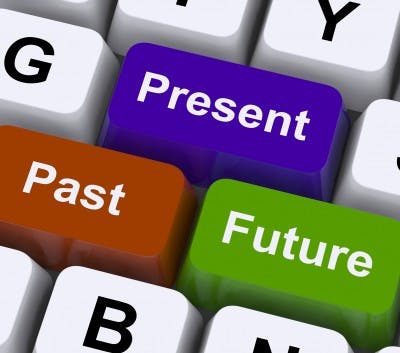It’s not me, it’s you. Right?
At least that’s what employers and employees keep telling themselves. So much unhappiness, like a terminal relationship enabling one another to barely function and just get by day to day in the world of work.
Survey after survey after survey tells us how 98.5 percent of the workforce is disengaged and feels disenfranchised, with one person doing the work of 10 men (and women) today. Okay, maybe not that high, but it’s high and you’ve most likely seen all the research and other insightful analyses.
It’s so high that none of us in the HR business can argue that something isn’t perilously wrong.
Adapting to our changing world of work
Back to the enabling, though. We work so hard on making the unhappy happier, regardless if they’re a high-potential or not. More than likely they’re not; those tend to be the individuals who take the time to bleed all over their employee satisfaction surveys.
However, those who consistently complain that they’re not getting equal time, pay or perks like their colleagues and peers are, probably shouldn’t be getting it, and we all know it. Heck, most of them know it, too.
Consider how the very nature of work is executed today. We may hold on desperately to the oxymoron of an accurate job description, but many of us know better. We know that what we think needs to be done and what actually needs to be done is discovered like new continents each and every week. The skills, competencies and experience needed to plan for X and complete Y need to be as flexible as possible to stay competitive, even in more traditional manufacturing and services industries.
This is why full-time teams aren’t always needed anymore to get the work done. It could be a team of part-time contractors managed by a vendor contracted by your employer and project managed by you — or a myriad of multifaceted combinations therein.
They could be short-term projects where teams move from one employer to another, or turn into longer term projects where individuals are recruited to come on full-time or at least contracted for ongoing freelance work. It’s the very nature of the work that inspires and motivates, followed by who we work with and for, and why.
“Don’t ask, just do”
Freelance programmers are getting Hollywood agents for goodness sake (which did happen a little back in the dot.com heyday, too). Anyone who’s ever consulted and contracted in any capacity knows how the world is warming to this trend, some of it boiling over.
The contingent are not ones to mince words or to cry for coddling when things don’t go their way; they’ve got to make it happen every single day. They bring everything about themselves to whatever they do and then get it done.
They have to, or they don’t get paid, or get the next gig. The way work gets done continues to change, and how those who get it done are rewarded continues to change. HR has to take ownership over it all, which is why I enjoyed two interrelated themes from the SHRM Talent Management Conference and Exposition in Las Vegas earlier this month.
The first was reality-based leadership speaker and former HR leader, Cy Wakeman, who shared passionately and matter-of-factly to stop the company coddle and make change happen, since you’re already sitting at the table. Don’t ask, just do.
Stop coddling employees
In other words:
- Stop coddling unhappy employees.
- Focus on developing those who want to work for you, and expanding their strengths.
- Accelerate development changes.
- Encourage differentiation by using “benefits” as a reward for results.
Stop the company coddle. Indeed. HR professionals have an opportunity today to truly make a difference in the ongoing success of their organizations. It comes from lifting performance across all members of the workforce — from contingent to full-time. It comes from tapping deeply into individual and collective strengths, and elevating performance to new levels.
Then there was Teresa Hopke, another former talent management professional and now SVP of Life Meets Work, a company that helps organizations become better workplaces through flexible work, telecommuting policies and workplace flexibility.
She established what many of us already know — that we’re chronically connected to our world of work, and it’s only through workplace flexibility where we can start creating healthier teams and cultures with emotional connectivity, where more people want to stay and where they’re highly engaged both in full-time and contract capacities.
Making the most of ourselves, and others
Flexibility in the workplace doesn’t have to come at the expense of reduced collaboration either. Team flex is the motivating key, not individual flex.
And by the way, both of these HR leaders are women, which should come as no surprise. I only say that because we need more of the above mindset in business today, in both women and men (and yes there are men who “feel” this way, like me for example). I’m currently reading Sheryl Sandberg’s Lean In, which I recommend folks from both genders and all business walks of life read. In it she’s states:
It has been an evolution, but I am now a true believer in bringing our whole selves to work.”
That has never been truer on so many levels as it has today no matter what that “work” is. It’s no longer about making the perpetually unhappy happy. It’s about making the most of ourselves and of HR’s natural ability to inspire and support the ever-evolving world of work.
That natural ability is in the whole flex.
This was originally published on Kevin Grossman’s Reach West blog.
